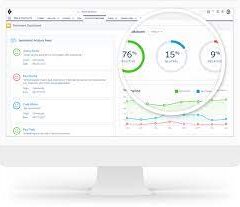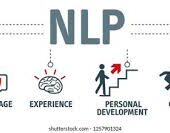Enterprise AI: Revolutionizing Business Operations for a Competitive Edge
Enterprise AI refers to the suite of advanced artificial intelligence technologies—such as machine learning, natural language processing (NLP), robotics, and computer vision—that organizations use to transform operations, enhance efficiency, and gain a competitive advantage. These technologies demand high-quality data, skilled expertise, and adaptability to rapid advancements.
Businesses increasingly adopt enterprise AI because of its ability to automate critical processes, reduce costs, optimize operations, and enable data-driven decision-making. According to McKinsey’s 2024 report, 72% of organizations now integrate AI into their operations, a significant increase from 50% just six years ago.
However, implementing AI presents challenges, such as employee mistrust, data biases, lack of explainability, and managing AI’s fast evolution. Successful adoption requires aligning AI initiatives with organizational goals, fostering data trust, and building internal expertise.
This guide provides a strategic roadmap for embracing enterprise AI, covering foundational concepts, advanced use cases, and ways to navigate common pitfalls.
Why AI Matters in the Enterprise
Enterprise AI is a transformative force, similar to how the internet revolutionized global businesses. By integrating AI into their operations, organizations can achieve:
- Cost Savings: Automating workflows and streamlining processes.
- Efficiency Gains: Reducing bottlenecks and improving productivity.
- Innovation Opportunities: Opening new avenues for product development and customer engagement.
AI-driven applications are reshaping industries by enabling hyper-personalized customer experiences, optimizing supply chains, and automating repetitive tasks to free employees for higher-value contributions.
The rapid pace of AI innovation requires leaders to consistently re-evaluate its alignment with their strategies while maintaining effective data management and staying informed on evolving tools and regulations.
AI’s Transformational Impact on Business
AI’s potential is as groundbreaking as electrification in the 20th century. Its immediate influence lies in automating tasks and augmenting human workflows. For example:
- Healthcare: AI improves diagnostics and enhances patient care.
- Finance: AI strengthens fraud detection, risk assessment, and customer personalization.
- Manufacturing: Predictive maintenance and demand forecasting boost efficiency.
- Retail: AI enhances customer engagement with personalized recommendations.
Generative AI tools like ChatGPT and Copilot further accelerate adoption by automating creative and intellectual tasks.
Key Benefits of Enterprise AI
- Enhanced Customer Experiences: AI-powered NLP systems and chatbots improve interactions and satisfaction.
- Real-Time Monitoring: Immediate issue detection and resolution optimize operations.
- Faster Processes: Streamlining product development shortens time-to-market.
- Reduced Errors: AI minimizes human mistakes, increasing compliance and accuracy.
- Workforce Empowerment: AI aids hiring, training, and workplace enhancement.
Challenges of Enterprise AI
Despite its benefits, AI adoption comes with hurdles:
- Employee Resistance: Mistrust arises from opaque decision-making or unclear benefits.
- Data Biases: Poor-quality datasets can result in inaccuracies and discriminatory outcomes.
- Security Risks: Shadow AI tools outside organizational oversight pose compliance challenges.
- Pace of Innovation: Keeping up with technological advancements requires governance and adaptability.
Ethical concerns, such as workforce displacement and societal impacts, also demand proactive strategies.
AI and Big Data: A Symbiotic Relationship
AI thrives on large, high-quality datasets, while big data analytics leverage AI to extract deeper insights. The rise of cloud computing amplifies this synergy, enabling scalable, cost-effective AI deployments.
Evolving AI Use Cases
AI continues to redefine industries, turning complex tasks into routine operations:
- Finance: Fraud detection and robo-advisors enhance security and customer service.
- Manufacturing: AI optimizes production and predictive maintenance.
- Education: Personalized learning platforms adapt to individual student needs.
- Marketing: AI-driven tools revolutionize customer engagement and sentiment analysis.
Future AI Trends to Watch
- AutoML: Automating machine learning processes to lower costs and speed up implementation.
- Generative AI: Transforming creative fields such as design and architecture.
- Multimodal Learning: Integrating text, images, speech, and IoT data for richer insights.
- Ethical AI: Focusing on transparency, fairness, and accountability in AI applications.
Building the Future with Responsible AI
As AI advances, organizations must prioritize responsible AI practices, balancing innovation with ethical considerations. Developing robust frameworks for transparency and governance is essential to maintaining trust and fostering sustainable growth.
AI’s future offers vast opportunities for businesses willing to adapt and innovate. By aligning AI initiatives with strategic goals and investing in robust ecosystems, enterprises can unlock new efficiencies, drive innovation, and lead in their industries.













